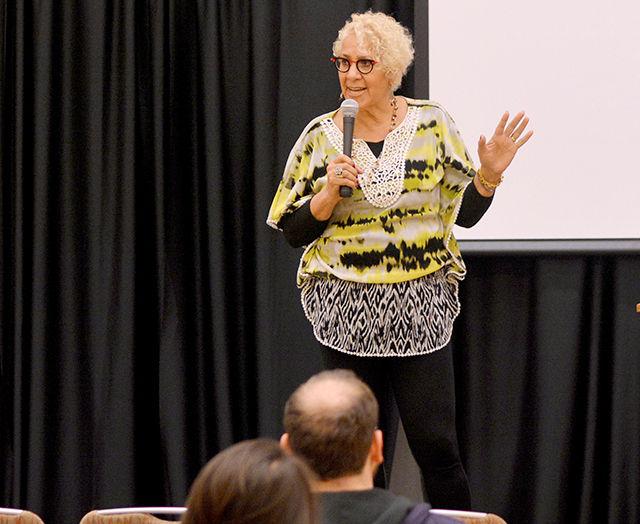Filmmaker and the founder and president of World Trust Shakti Butler spoke to students and guests participating in NC State’s the fifth-annual Diversity Education Week Thursday evening.
World Trust is a foundation that works to eliminate social and racial injustice through transformational education. Butler’s speech, titled Cracking the Codes: Systems of Inequity, was part of the Fall Diversity Dialogue. Throughout her speech, Butler showed videos, posed questions and encouraged audience discussion about the importance of promoting racial equality.
At the beginning of her speech, Butler asked NC State students and community members in attendance to close their eyes, take three deep breaths and imagine themselves in their favorite place.
Next, she asked the audience members to think of their personal gifts to society.
“All of these qualities and gifts that you have are a part of your moral compass,” Butler said. “Sometimes we don’t take the time to take stock of the wonder of who we are as human beings. If we are going to work together to create the kind of world that invites other humans to step into their greatness too, then we have to know our collective strengths. We have to have a sense of who we are together, not just who we are individually.”
Butler used collective understanding and strengths to approach developing solutions for pressing problems in the world today.
Transformative learning is all about understanding people’s deeply embedded assumptions about how they think the world really works and unearthing those assumptions to make appropriate changes, Butler said.
“We are born into a system we did not create,” Butler said. “We’ve stepped into a history we did not create. And, most importantly, we have a responsibility to use our collective gifts to create a racially and socially equal world that we want our children’s children to experience.”
Butler shared a TED Talk video with the audience that introduced the idea and dangers of the single story, or rooted stereotypes people have about certain people or cultures.
Erin Figgins, a sophomore in human biology, said the most important thing she took away from this event was that people all have single stories embedded into their minds.
“We have these preconceived perceptions about things and people that, in reality, we don’t know anything about,” Figgins said. “As far as doing something about it, I think it’s important to identify these single stories and try to erase them, or at least take a step back and think about why I am thinking about these ideas in that way.”
Butler said the event was about planting seeds for future conversations, and she ended her speech with a challenge.
“The questions we ask ourselves predetermine the paths we take,” Butler said. “So we need to ask ourselves better questions. How do we create a different tomorrow? How do we find the answers? What are you curious about? And what are you going to do to change our world?”








